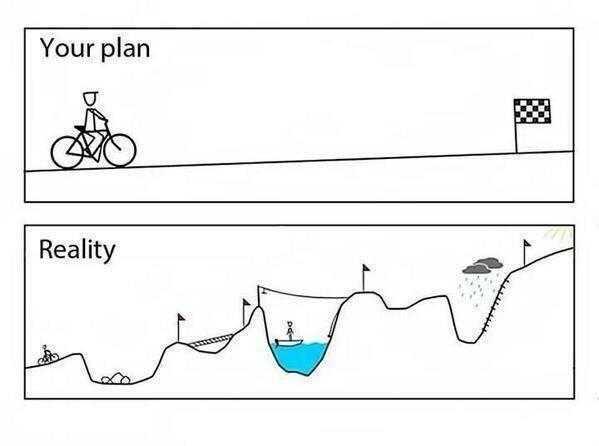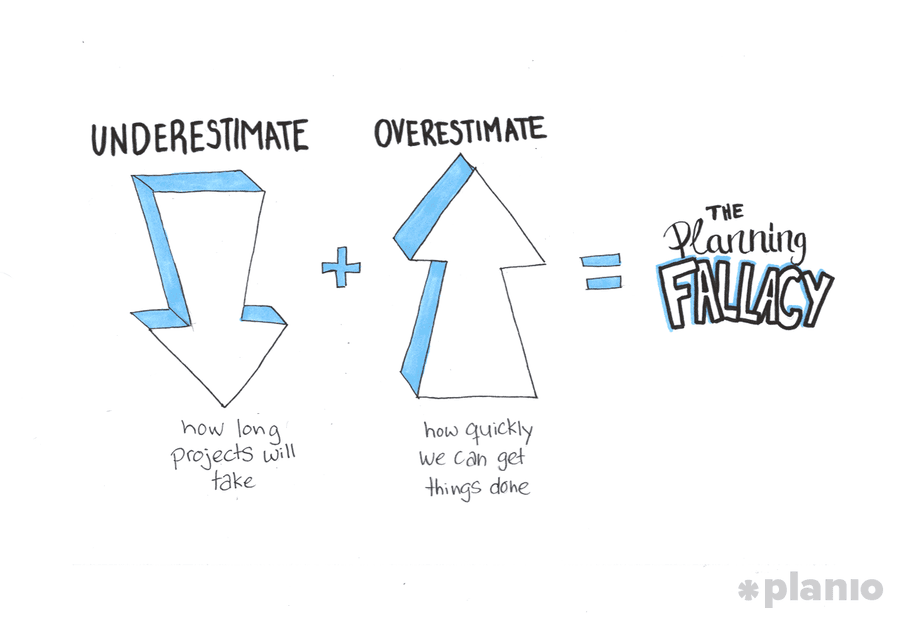The Planning Fallacy
We tend to underestimate the time it will take to complete a future task despite knowing that previous tasks have taken longer.
What you can do about it:
- Break projects down into smaller parts and estimate how long each will take.
- Add 20% to your project timeline. Finishing earlier than expected is better than being surprised by it.
- Use historical data to make better predictions.
- Limit the scope of the work. It means leaving off some things for a later stage.
- When you're going to miss a deadline, communicate that early and often.
1.21K
2.93K reads
CURATED FROM
IDEAS CURATED BY
The idea is part of this collection:
Learn more about timemanagement with this collection
Understanding the importance of decision-making
Identifying biases that affect decision-making
Analyzing the potential outcomes of a decision
Related collections
Similar ideas to The Planning Fallacy
The planning fallacy
The planning fallacy is the likelihood to underestimate the time it will take to finish a future task despite knowing that similar projects have taken longer in the past. For example, writers underestimate how long it will take to complete a novel; product managers miscalcula...
The planning fallacy
Is our tendency to underestimate the amount of time it will take to complete a task. Estimation mistakes can usually be attributed to 2 key factors:
- Failing to consider how long it’s taken us to complete similar tasks in the past.
- Assuming that we won’t run int...
The planning fallacy
The term 'planning fallacy' was coined in 1977 and deals with how most of us are terrible at estimating how long a project will take. We are overly optimistic but terrible at predicting the future. If the project has a budget, we may underestimate that expense to...
Read & Learn
20x Faster
without
deepstash
with
deepstash
with
deepstash
Personalized microlearning
—
100+ Learning Journeys
—
Access to 200,000+ ideas
—
Access to the mobile app
—
Unlimited idea saving
—
—
Unlimited history
—
—
Unlimited listening to ideas
—
—
Downloading & offline access
—
—
Supercharge your mind with one idea per day
Enter your email and spend 1 minute every day to learn something new.
I agree to receive email updates


